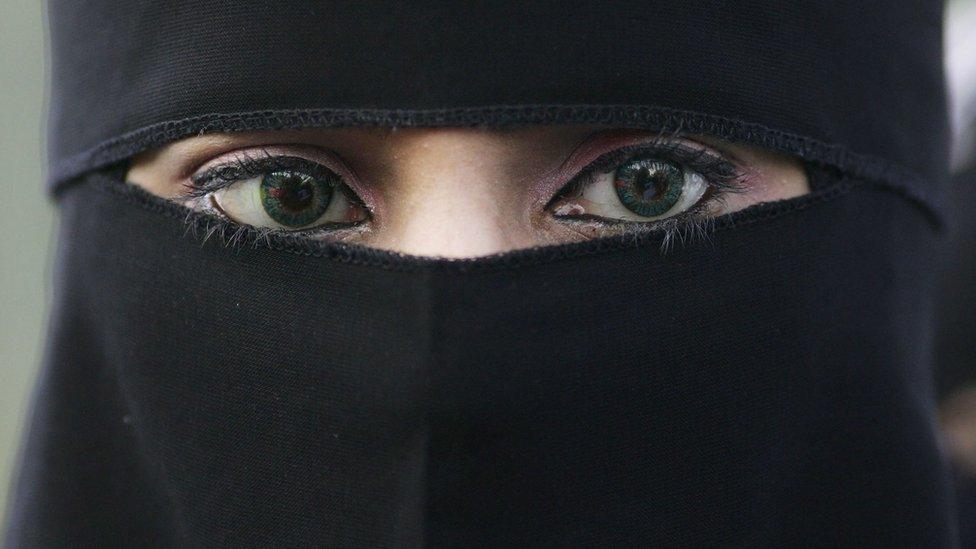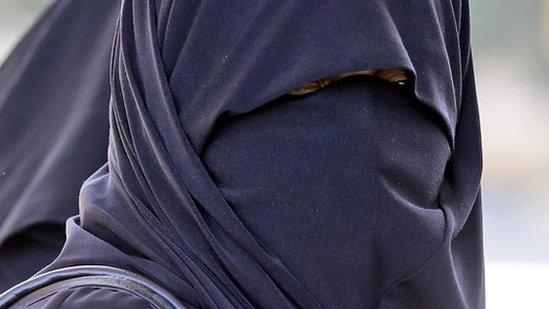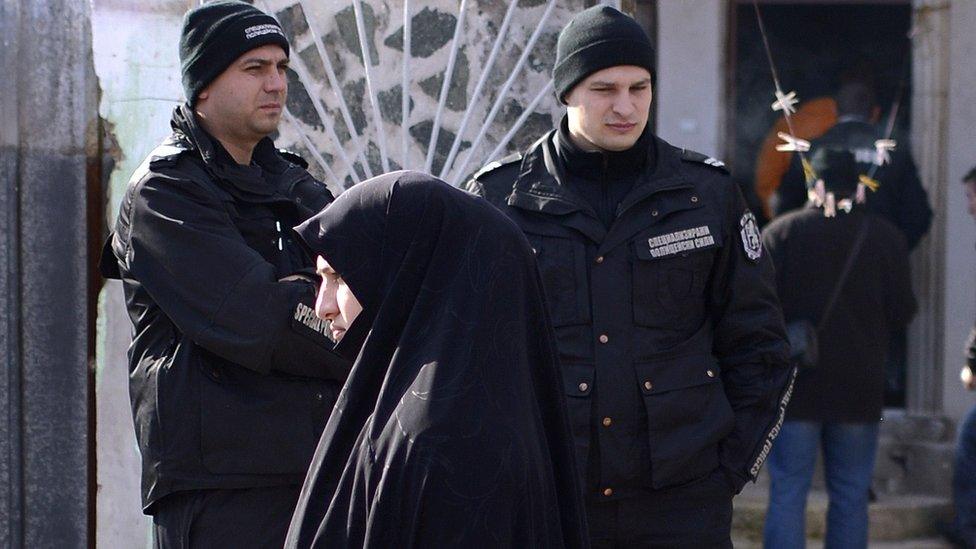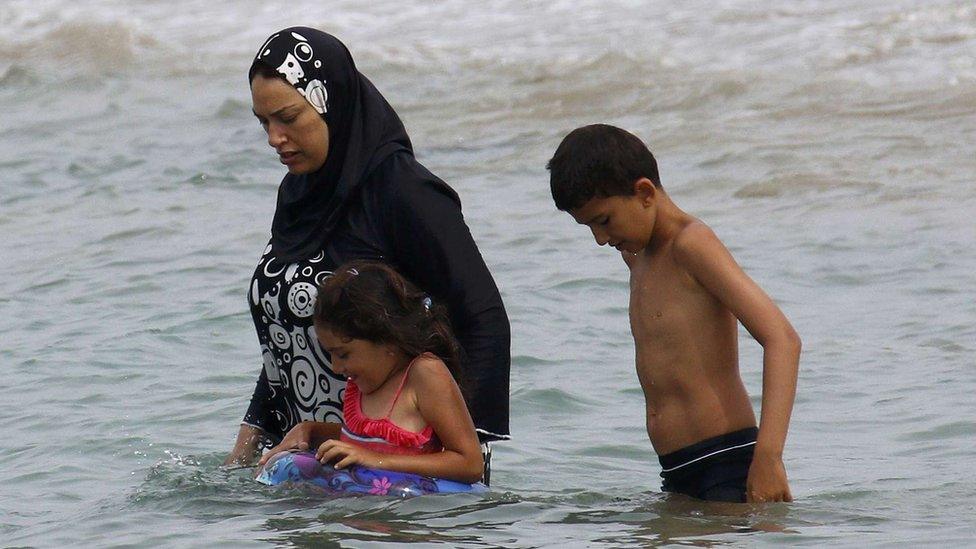Burka ban backed by Dutch MPs for public places
- Published

Burkas and niqab veils will be banned in certain public places if the law is passed
Dutch MPs have backed a ban on the Islamic full veil in some public places such as schools and hospitals, and on public transport.
The niqab face veil and the burka, which covers the eyes, are included in the ban along with other face coverings such as ski-masks and helmets.
The Dutch Senate must approve the bill, which has government backing, for it to become law.
Supporters of the ban say people should be identifiable in public places.
Prime Minister Mark Rutte's ruling Liberal-Labour coalition described the bill as "religious-neutral".
Offenders would face a fine of up to €410 (£350; $435).
Religious freedom campaigner Karima Rahmani said people should be able to wear what they want without the state interfering. "What is disturbing us about this law is that it is a direct attack on freedom of expression," she told a reporter from German media company ARD, external.
A previous attempt to pass a law in the Netherlands banning the burka in all public spaces - including on the street - failed because it was deemed unnecessarily wide-reaching but similar laws have been passed in France, Belgium and Switzerland.
The Netherlands faces a national election in March 2017. The opposition anti-Islam Freedom Party, which has been leading in pre-election polls, wants a full ban on face-covering clothing.
Between 100 and 400 Muslim women in the Netherlands are thought to wear the niqab.
- Published10 August 2016

- Published24 May 2016

- Published26 August 2016
